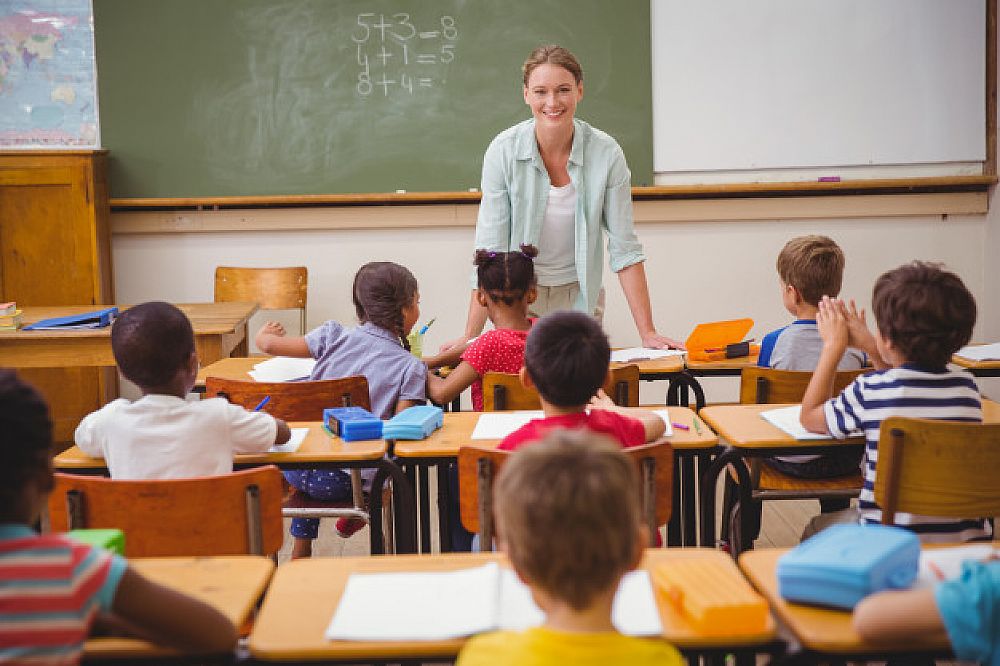Find the Best Primary Science Tuition Singapore for Enhanced Learning
Find the Best Primary Science Tuition Singapore for Enhanced Learning
Blog Article
Exploring the Various Teaching Approaches in Primary Scientific Research Education And Learning Today
Inquiry-based discovering, hands-on experiments, and the assimilation of innovation are redefining just how educators involve young minds. Additionally, collaborative methods and differentiated instruction are being employed to provide to the diverse demands of trainees, enhancing both engagement and understanding.
Inquiry-Based Learning
Inquiry-Based Learning (IBL) is a pedagogical approach that urges pupils to explore clinical principles through doubting, examination, and hands-on trial and error. This technique highlights the duty of students as active participants in their understanding, promoting vital reasoning and problem-solving skills. By engaging with real-world inquiries, students become curious and inspired, which boosts their understanding of clinical concepts.
In IBL, educators act as facilitators, directing trainees as they navigate their questions rather than delivering information directly. This student-centered method enables differentiation, fitting different discovering paces and styles. Pupils create abilities in creating theories, making experiments, and assessing information, which are important for scientific literacy.
Additionally, IBL fosters collaboration amongst pupils, motivating them to share searchings for and concepts. This collective inquiry advertises social abilities and a sense of community within the class. The procedure of query encourages strength, as pupils discover to embrace failing as a stepping stone towards understanding.
Hands-On Experiments
Hands-on experiments are a crucial part of effective scientific research education and learning, complementing the concepts of inquiry-based knowing. These experiments allow trainees to engage straight with scientific principles, promoting a deeper understanding via experiential understanding. By adjusting products and observing results, young learners can realize abstract concepts in concrete methods.
Such activities promote essential thinking and analytical abilities, as pupils assume end results, conduct experiments, and examine outcomes. This process motivates them to ask concerns, improve their understanding, and create a scientific attitude. Hands-on experiments can be customized to varied learning styles, making sure that all pupils have the opportunity to engage meaningfully with the material.
In addition, hands-on experiments frequently motivate cooperation amongst peers, advertising teamwork and communication skills. Functioning in groups allows trainees to share concepts, review findings, and discover from each other, which enhances their general instructional experience.
Incorporating hands-on experiments right into the key science curriculum not only enriches the learning atmosphere but also cultivates a lifelong rate of interest in science. By actively taking part in their education and learning, students are most likely to develop an enthusiasm for clinical questions that expands past the classroom.

Technology Assimilation
Incorporating technology into primary scientific research education has actually become progressively necessary in promoting student involvement and boosting finding out results. The usage of electronic devices, such as interactive simulations, online labs, and instructional software program, supplies trainees with opportunities to explore clinical principles in cutting-edge methods. These resources help with a deeper understanding of complex subjects by permitting students to visualize and manipulate variables that would certainly be unwise in a traditional classroom setup.
Additionally, innovation integration urges personalized finding out experiences. Trainees can progress at their very own speed, revisiting tough concepts via multimedia sources, which accommodate various knowing designs. This versatility not only sustains individual development however also grows a feeling of freedom in learners.
Additionally, modern technology serves as a bridge to real-world scientific research, linking pupils with current study and professional payments. Access to clinical journals and online data sources expands trainees' perspectives on clinical questions and cultivates essential assuming skills.
Collaborative Discovering
Joint learning plays a crucial duty in primary science education by cultivating synergy and communication skills among trainees. This strategy encourages learners to interact, share expertise, and take part in problem-solving, which improves their understanding of clinical principles. By joining group activities, students learn to verbalize their ideas, listen to diverse point of views, and discuss remedies, every one of which are essential skills in both academic and real-world contexts.

Study suggests that joint knowing can bring about enhanced inspiration and involvement in scientific research subjects, as trainees locate enjoyment in shared experiences (primary science tuition Singapore). In addition, this approach prepares trainees for future joint endeavors, furnishing them with the abilities essential for effective team effort in college and professional atmospheres. Inevitably, welcoming collaborative discovering in key science education and learning can significantly enhance the discovering experience and advertise a much deeper understanding of scientific inquiry
Separated Guideline

Separated guideline can manifest in different methods, such as differing the content, procedures, or items of discovering. Educators may utilize tiered assignments that provide differing levels of complexity, permitting trainees to work at their respective preparedness levels. Additionally, flexible organizing strategies can promote partnership among trainees with different abilities, cultivating peer discovering.
Assessment plays an important function in this technique, as it educates direction and aids teachers understand each pupil's distinct demands. Formative analyses, such as quizzes and monitorings, can direct teachers in readjusting their approaches to enhance finding out outcomes. primary science tuition Singapore. Eventually, by implementing set apart instruction in primary scientific research education and learning, instructors can cultivate a more fair and reliable knowing setting, encouraging all trainees to reach their full capacity in comprehending clinical sensations
Conclusion
In summary, the diverse mentor approaches in main science education and click for more info learning, consisting of inquiry-based understanding, hands-on experiments, innovation assimilation, collective understanding, and set apart instruction, collectively contribute to a more efficient knowing environment. These techniques advertise important reasoning, analytic abilities, and a deeper understanding of clinical principles. By executing these techniques, instructors can create encouraging and interesting classrooms Full Article that deal with the different demands of students, ultimately fostering a long-lasting passion in science and boosting academic achievement.
Inquiry-Based Knowing (IBL) is a pedagogical method that motivates trainees to discover clinical ideas with questioning, examination, and hands-on experimentation.Collaborative learning plays an essential function in primary science education by cultivating teamwork and interaction skills amongst pupils.Research study indicates that collective knowing can lead to increased inspiration and engagement in science subjects, as pupils locate satisfaction in shared experiences.In fostering an inclusive understanding atmosphere, separated instruction emerges as a vital approach to fit the varied requirements and abilities of trainees in primary scientific research education. Inevitably, by carrying out differentiated direction in primary science education and learning, teachers can grow a more equitable and reliable learning atmosphere, encouraging all students to reach their complete potential in recognizing clinical phenomena.
Report this page